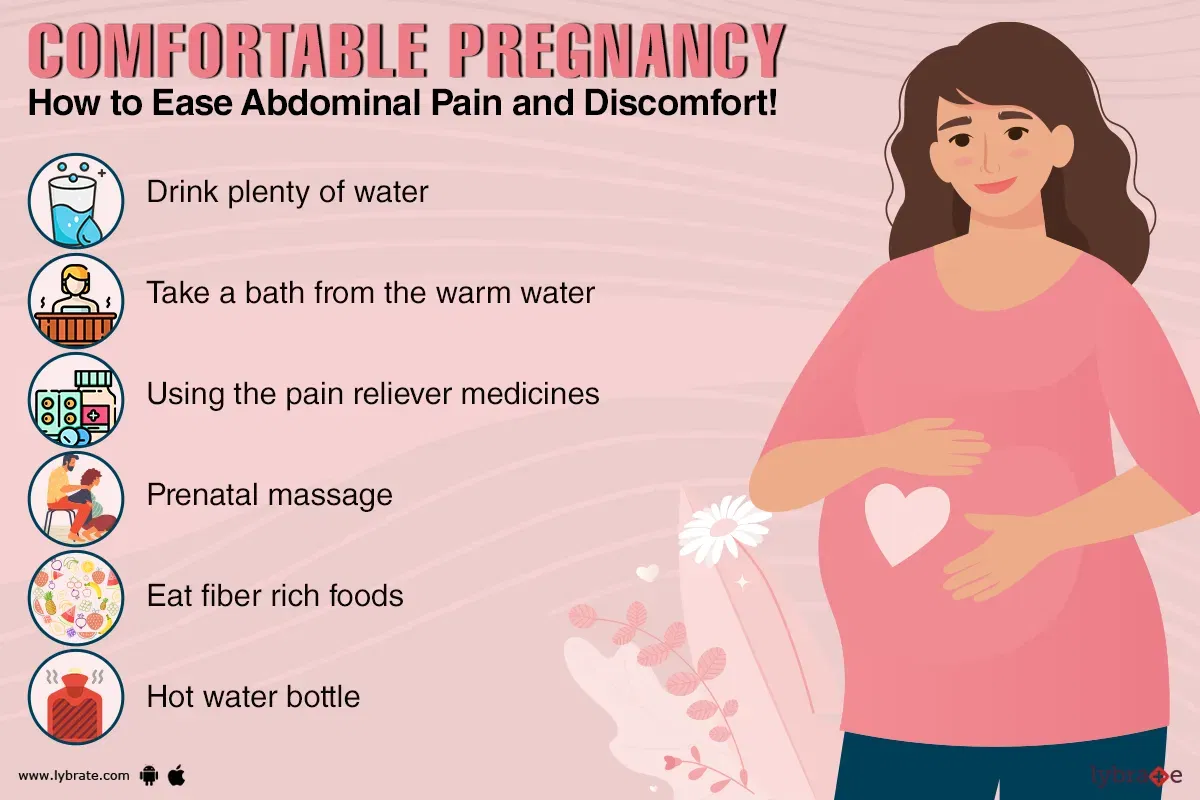
Abdominal Pain in Pregnancy: Causes, Treatment, and Prevention
Abdominal pain is a common complaint during pregnancy, affecting up to 80% of women. While most abdominal pain is harmless, some types can be a sign of a more serious condition. It is important to be able to recognize the different types of abdominal pain and know when to seek medical attention.
Causes of Abdominal Pain in Pregnancy
There are many different causes of abdominal pain in pregnancy, including:
- Round ligament pain: This is a sharp, stabbing pain that occurs in the lower abdomen or groin area. It is caused by the stretching of the round ligaments, which support the uterus. Round ligament pain is usually worse when you change positions or cough.
- Gas and bloating: Gas and bloating are common during pregnancy due to the increased levels of progesterone, which relaxes the muscles in the digestive tract. This can lead to constipation and gas buildup, which can cause abdominal pain.
- Constipation: Constipation is another common cause of abdominal pain during pregnancy. It is caused by the increased levels of progesterone, which can slow down the digestive process. Constipation can also lead to hemorrhoids, which can be painful.
- Urinary tract infections (UTIs): UTIs are common during pregnancy due to the increased levels of progesterone, which can relax the muscles in the urinary tract. This can allow bacteria to enter the bladder and cause an infection. UTIs can cause abdominal pain, as well as burning or pain when urinating.
- Preeclampsia: Preeclampsia is a serious condition that can develop during pregnancy. It is characterized by high blood pressure and protein in the urine. Preeclampsia can cause abdominal pain, as well as swelling in the hands, feet, and face.
- Abdominal separation: Abdominal separation, also known as diastasis recti, is a condition that occurs when the two muscles of the abdomen (the rectus abdominis) separate during pregnancy. This can cause a bulge in the abdomen and abdominal pain.
- Ectopic pregnancy: An ectopic pregnancy is a pregnancy that occurs outside of the uterus. This is a serious condition that can be life-threatening. Ectopic pregnancies can cause abdominal pain, as well as vaginal bleeding.
Treatment for Abdominal Pain in Pregnancy
The treatment for abdominal pain in pregnancy will depend on the cause of the pain. Some common treatments include:
- Rest: Rest can help to relieve abdominal pain caused by round ligament pain, gas and bloating, and constipation.
- Warm baths: Warm baths can help to relax the muscles and relieve abdominal pain.
- Over-the-counter pain relievers: Over-the-counter pain relievers, such as acetaminophen or ibuprofen, can help to relieve mild to moderate abdominal pain.
- Prescription pain relievers: Prescription pain relievers may be necessary to relieve severe abdominal pain.
- Surgery: Surgery may be necessary to treat an ectopic pregnancy or abdominal separation.
Prevention of Abdominal Pain in Pregnancy
There are a few things you can do to help prevent abdominal pain during pregnancy, including:
- Get regular exercise: Regular exercise can help to strengthen the muscles of the abdomen and back, which can help to prevent round ligament pain.
- Eat a healthy diet: Eating a healthy diet can help to prevent gas and bloating. Be sure to eat plenty of fruits, vegetables, and whole grains.
- Drink plenty of fluids: Drinking plenty of fluids can help to prevent constipation.
- Avoid caffeine and alcohol: Caffeine and alcohol can both contribute to gas and bloating.
- Get enough sleep: Getting enough sleep can help to reduce stress and prevent abdominal pain.
When to Seek Medical Attention
It is important to seek medical attention if you experience any of the following symptoms:
- Severe abdominal pain
- Abdominal pain that is accompanied by vaginal bleeding
- Abdominal pain that is accompanied by fever or chills
- Abdominal pain that is accompanied by nausea or vomiting
- Abdominal pain that is accompanied by swelling in the hands, feet, or face
These symptoms could be a sign of a more serious condition, such as an ectopic pregnancy or preeclampsia.